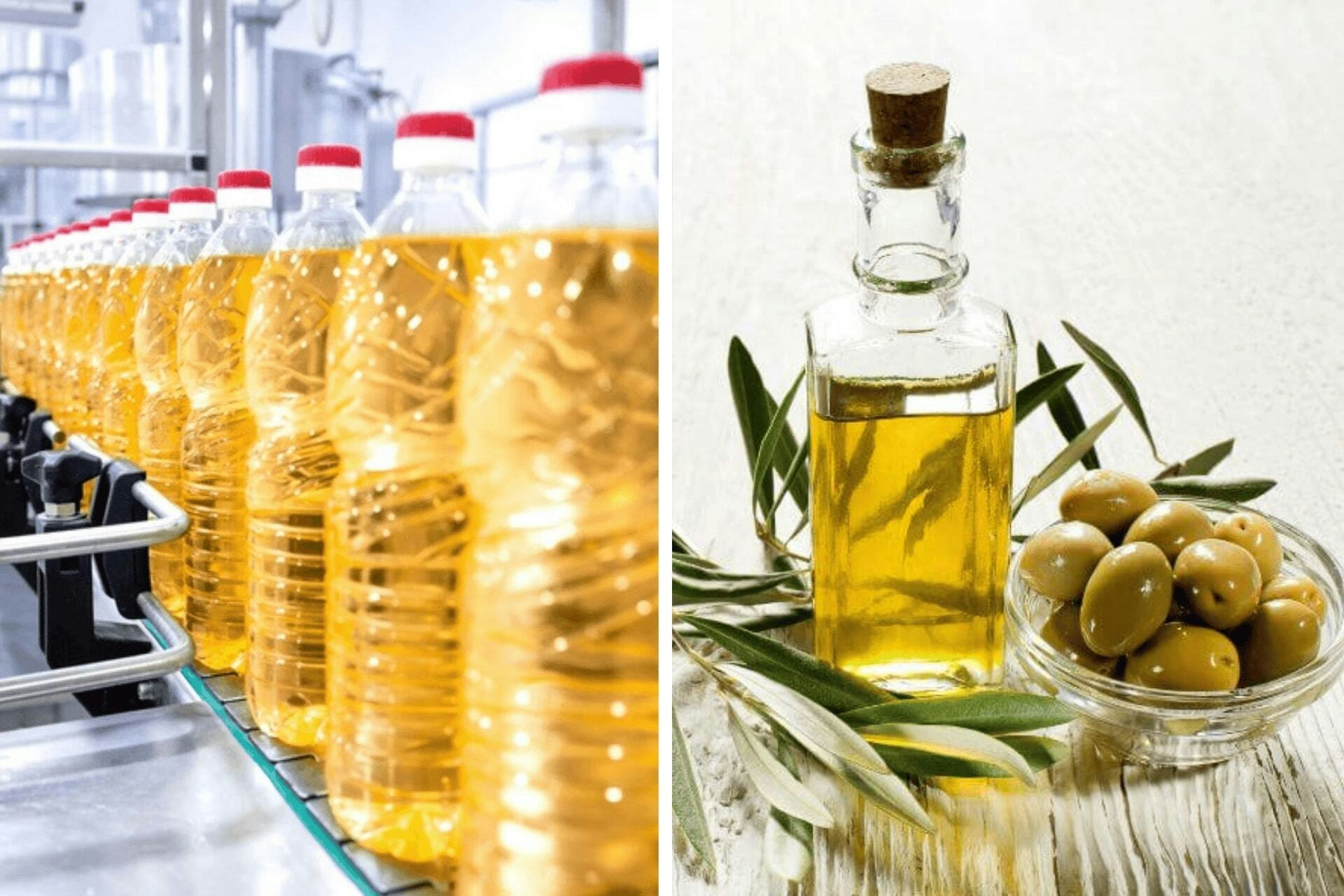Vegetable oils, derived from various plant sources such as seeds, nuts, and fruits, are staples in kitchens worldwide. Common types include canola, soybean, and sunflower oil. These oils may be popular for their versatility, although many people wonder about their shelf life and whether they can spoil over time.
Generally, vegetable oils can last for several months, but their longevity also depends on several factors. Here, we will explore how long vegetable oil can last, the various factors that influence its freshness, and provide practical tips for proper storage.
Does Vegetable Oil Go Bad?
Like most cooking oils, vegetable oil is prone to oxidation, which causes it to spoil and lose its quality. Oxidation occurs when oil is exposed to oxygen, which leads to the formation of free radicals and off-flavors. This is particularly common in oils with higher polyunsaturated fat content. Examples are canola oil, corn oil, soybean oil, and sunflower oil ❶.
Besides air exposure, oxidation also happens when vegetable oils are exposed to light. Another factor is improper storage or contamination, which could promote spoilage as bacteria and fungi grow ❷.
Related: Best Vegetable Oil Substitute and Other Alternatives
How Long Does Vegetable Oil Last?
Once opened, vegetable oil typically stays fresh for about 12 to 18 months, although it can vary depending on the type of oil and storage conditions. For instance, canola oil may last about 6 to 8 months, while corn oil can last up to 1 year.
You may notice a "best-before" date on the label, which indicates that the oil is at its peak quality until that date, meaning it should taste and perform best if used by then. This is not the same as an expiration date, which indicates the point at which the product is no longer safe to consume.
Refined vegetable oils like canola or sunflower tend to last longer because they go through more processing, which helps extend their shelf life.
However, this process comes with several drawbacks, such as the loss of some antioxidants and vitamins, and the introduction of small amounts of solvents used in extraction.
How Can You Tell If Vegetable Oil Has Gone Bad?
A vegetable oil has probably gone bad when it has unpleasant odors, an off-putting taste, a darker more unnatural color, or a slimy and thick texture. If it has a sour, musty, or rancid odor, it's likely spoiled.
Look at the oil's appearance — if it's cloudy or has changed color, that’s another clue. Lastly, if it tastes bitter or off, it's a clear sign the oil is no longer good to use. These signs indicate that the oil has oxidized and lost its freshness.
What Happens When You Use Expired Vegetable Oil?
Using expired vegetable oil can affect both the taste of your food and your health. While it’s usually not harmful in small amounts, regularly using rancid oil can lead to the buildup of harmful compounds, like free radicals, which may negatively impact your health over time.
For the best taste and food safety, it's important to refrain from using oil that has passed its expiration date.
How to Properly Store Vegetable Oil
To extend the shelf life of your oil and maintain its quality, here are some storage tips to keep in mind:
- Keep it in a cool, dark place. Store the oil in a pantry or cupboard away from direct sunlight and heat. A stable, cool environment prevents the oil from breaking down due to fluctuating temperatures and exposure to light.
- Seal the bottle tightly. Oxygen exposure can accelerate the oxidation process, which causes the oil to spoil more quickly. Always close the bottle tightly after each use to keep air from getting in.
- Use dark or tinted containers. If possible, store the oil in dark bottles to protect it from light. Algae Cooking Club's culinary oil comes in aluminum bottles, which keep the oil safe from light and air. To make pouring easier, we designed a special insert that lets you pour just the right amount without any mess.
- Avoid heat sources. Keep the oil away from stoves, ovens, or windows where heat can speed up spoilage. Even residual heat from appliances can raise the oil's temperature.
- Refrigerate if needed. Some oils, like flaxseed or walnut oil, may last longer when stored in the fridge. While most vegetable oils can be stored at room temperature, the cooler temperatures in a refrigerator can help slow down oxidation for oils that are particularly sensitive.
These simple tips will help your vegetable oil stay fresh and last longer!
Related: Can You Reuse Frying Oil?
The Bottom Line
Understanding how to properly store vegetable oil and recognizing the signs of spoilage are important to maintaining the quality and safety of your cooking ingredients.
For a healthier and more sustainable option, try algae cooking oil from Algae Cooking Club. This oil is processed without harmful pesticides or chemical solvents, comes in protective aluminum containers, and is rich in beneficial omega-9 fatty acids. Plus, our algae oil has an impressive shelf life of 2 years, ensuring its freshness and quality for an extended period.




